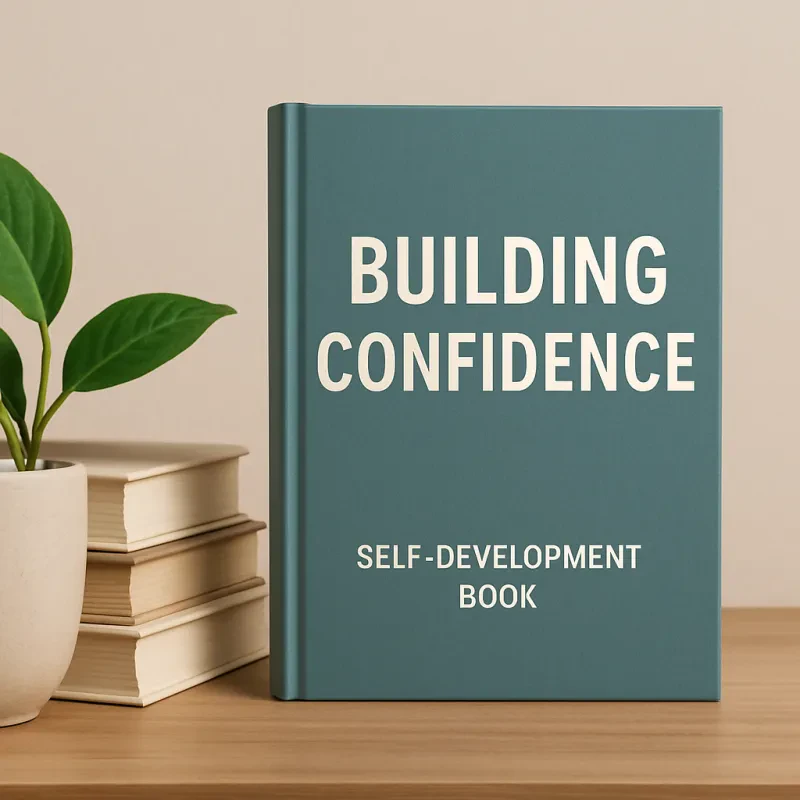I Am Thriving: How to Cultivate a Life of Purpose and Fulfillment
Many people yearn for happiness and success. Did you know that only 30% of Americans feel engaged at work? This statistic highlights a common struggle with finding true fulfillment. Thriving means much more than just surviving or meeting basic needs. It encompasses mental, emotional, and physical well-being. When you thrive, you experience joy, purpose, and a deep sense of belonging. This article will explore practical steps to help you create a thriving life full of purpose and fulfillment.
Cultivating a Growth Mindset: Embracing Challenges and Learning
The Power of Positive Self-Talk
Positive self-talk can reshape your reality. When you replace negative thoughts with uplifting ones, you drastically improve your chances of success. Studies show that people with a strong sense of self-worth achieve their goals more often. Consider Thomas Edison, who famously stated, "I have not failed. I've just found 10,000 ways that won't work." Edison’s mindset fueled his journey, leading to groundbreaking inventions.
Setting SMART Goals and Tracking Progress
Setting SMART goals—Specific, Measurable, Achievable, Relevant, and Time-bound—can help you reach your aspirations. “A goal without a plan is just a wish,” says expert Brian Tracy. For instance, instead of saying, "I want to get fit," a SMART goal would be, "I will exercise for 30 minutes, five times a week for the next three months." Track your progress weekly and adjust as needed to stay on course.
Embracing Failure as a Stepping Stone
Failure isn’t the end; it's a teacher. Research shows that resilient individuals are 50% more likely to succeed in life. Consider J.K. Rowling, who faced numerous rejections before Harry Potter became a global phenomenon. Each setback strengthened her resolve and led to remarkable success.
Prioritizing Physical and Mental Well-being: The Foundation of Thriving
The Importance of Self-Care
Self-care is vital for maintaining balance. Strategies like deep breathing, meditation, and time outdoors can reduce stress. Experts recommend dedicating at least 10 minutes a day to mindfulness practices. A simple self-care routine might include enjoying a warm bath, reading a book, or practicing yoga.
Nourishing Your Body
What you eat significantly affects how you feel. Proper nutrition and regular exercise lay the groundwork for physical and mental health. Research indicates that eating a balanced diet can enhance mood by 25%. Sarah, a busy professional, adopted a Mediterranean diet and began jogging twice a week, boosting her energy and focus.
Seeking Professional Support When Needed
Don’t hesitate to reach out if you're struggling. Mental health resources are crucial for recovery. Organizations like the National Alliance on Mental Illness offer support networks and hotlines. “Asking for help is a sign of strength,” says psychologist Dr. Lisa Firestone.
Building Meaningful Relationships: The Power of Connection
Cultivating Strong Social Connections
Strong relationships improve overall well-being. Studies reveal that people with strong social ties experience lower stress and increased longevity. Connect with friends and family regularly through simple acts like sharing a meal or a phone call. Consider Mark, who built a community through volunteering, creating a network of supportive friends.
Setting Boundaries and Saying No
Protecting your time is essential. Learning to say no without guilt can safeguard your energy. Experts suggest being direct and respectful. For example, instead of saying, “I’ll think about it,” respond with, “I appreciate the offer, but I can’t commit right now.”
Communicating Effectively
Healthy communication is key to strong relationships. Clear and open conversations reduce misunderstandings. Communication expert Dr. John Gottman suggests using "I" statements to express feelings. For example, “I feel overwhelmed when…” encourages dialogue rather than defensiveness.
Discovering and Pursuing Your Purpose: Living a Life of Meaning
Identifying Your Values and Passions
Start your journey by reflecting on your core values. Consider what truly matters to you. A simple self-assessment exercise could be listing five things that bring you joy. When Emily aligned her career with her passion for teaching, she found immense satisfaction in her work.
Setting Meaningful Goals
Choose goals that resonate deeply with you. Create a plan that aligns with your values to ensure fulfillment. To identify such goals, write down your top three values and brainstorm how they could translate into specific actions. "Finding your purpose is the first step toward living a fulfilling life," says life coach Tony Robbins.
Contributing to Something Larger Than Yourself
Volunteering can provide a profound sense of purpose. Statistics show that individuals who give back experience greater happiness. Maria spent weekends helping at a local shelter, creating a fulfilling connection to her community and enhancing her sense of purpose.
Embracing the Journey to a Thriving Life
Thriving is an ongoing process involving a growth mindset, physical and mental well-being, meaningful connections, and a purposeful life. Each step you take toward these aspects brings you closer to a fulfilling existence. Continue exploring your journey with commitment and enthusiasm. Start today by implementing one piece of advice from this article. A fulfilling life is within reach; take action now!



